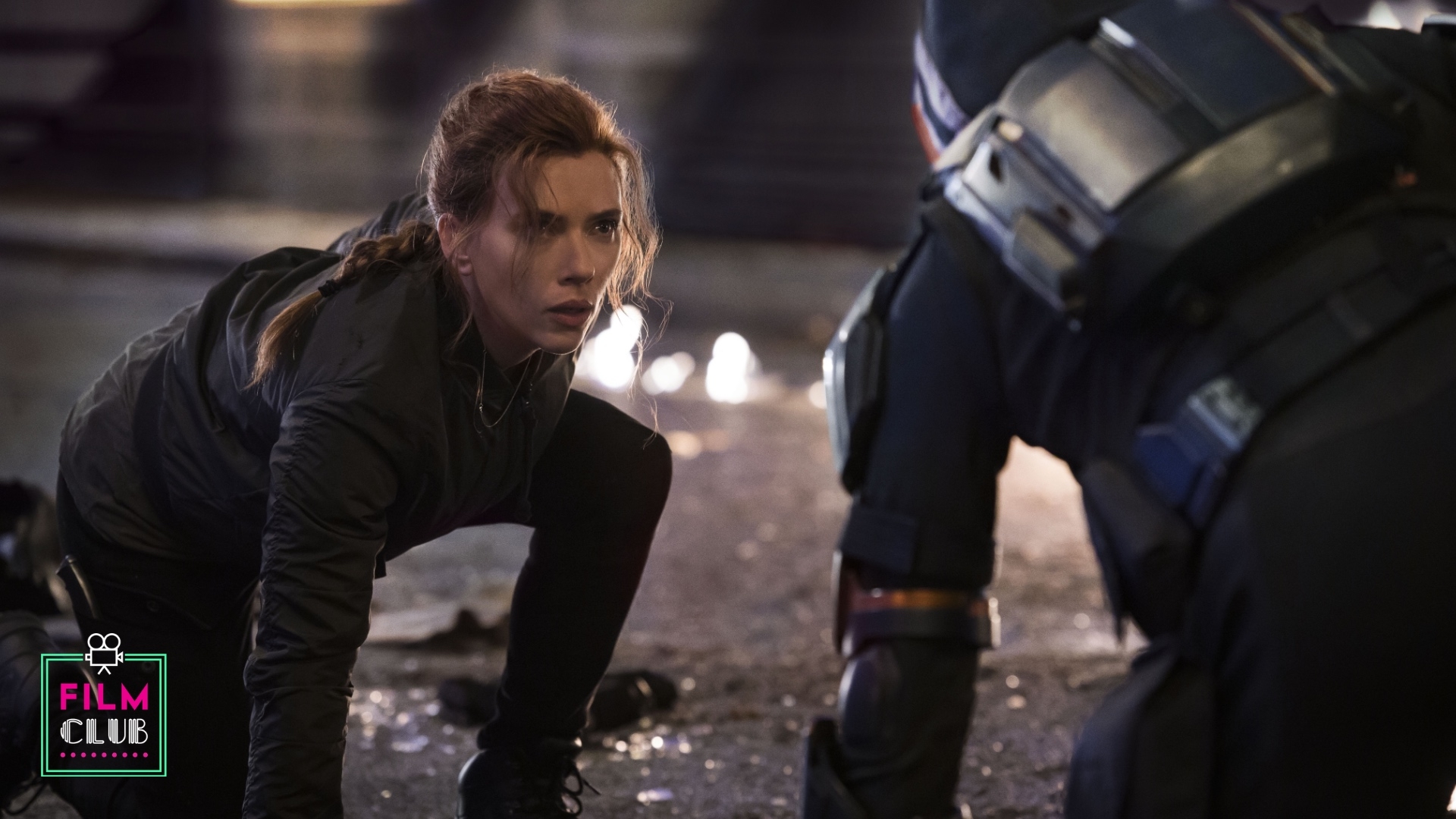How Black Widow adheres to and breaks from the Marvel formula
We finally have a starring vehicle for Scarlett Johansson’s Black Widow. But how does it stack up?

One year later than scheduled—and after years of fan demand—Marvel has finally released a starring vehicle for the most opaque of its Avengers, the Russian assassin that switched sides, Scarlett Johansson’s Natasha Romanoff. How does it stack up against past installments in this forever franchise? And does it manage to deviate from the formula established by its numerous predecessors? On this bonus episode of Film Club, A.A. Dowd, Katie Rife, and special guest Alex McLevy talk about Black Widow, the new Marvel movie playing in theaters and streaming on Disney+. For a larger conversation about the MCU, check out this week’s official, full episode of the podcast.
Here’s what Dowd had to say in his written review of Black Widow:
The film’s mandated collision of snark and somberness is sometimes uneasy: This is a four-quadrant event picture about trauma and guilt and child soldiers that’s also a glib wisecrack machine. At its center is a character who stubbornly refuses to shift fully into focus. “We’re both killers,” Elena tells Natasha, undercutting her delusions of growth and atonement. “You’re just the killer that little girls call their hero.” It’s a provocative line of thinking that the movie can’t resolve. Romanoff’s arc across these films has been a search for some way to erase the “red from her ledger”—an iconic line that gets a callback punchline here. In fashioning a side adventure that’s really a formal goodbye to one of the franchise’s original principles, Black Widow ties a neat bow on that motivation, offering redemption that feels half-earned at best.
Listen to the podcast above, subscribe on Apple Podcasts, and give us a five-star rating to help other listeners find us. And while you’re there, check out The A.V. Club’s other podcasts, Push The Envelope and Dial M For Maple.